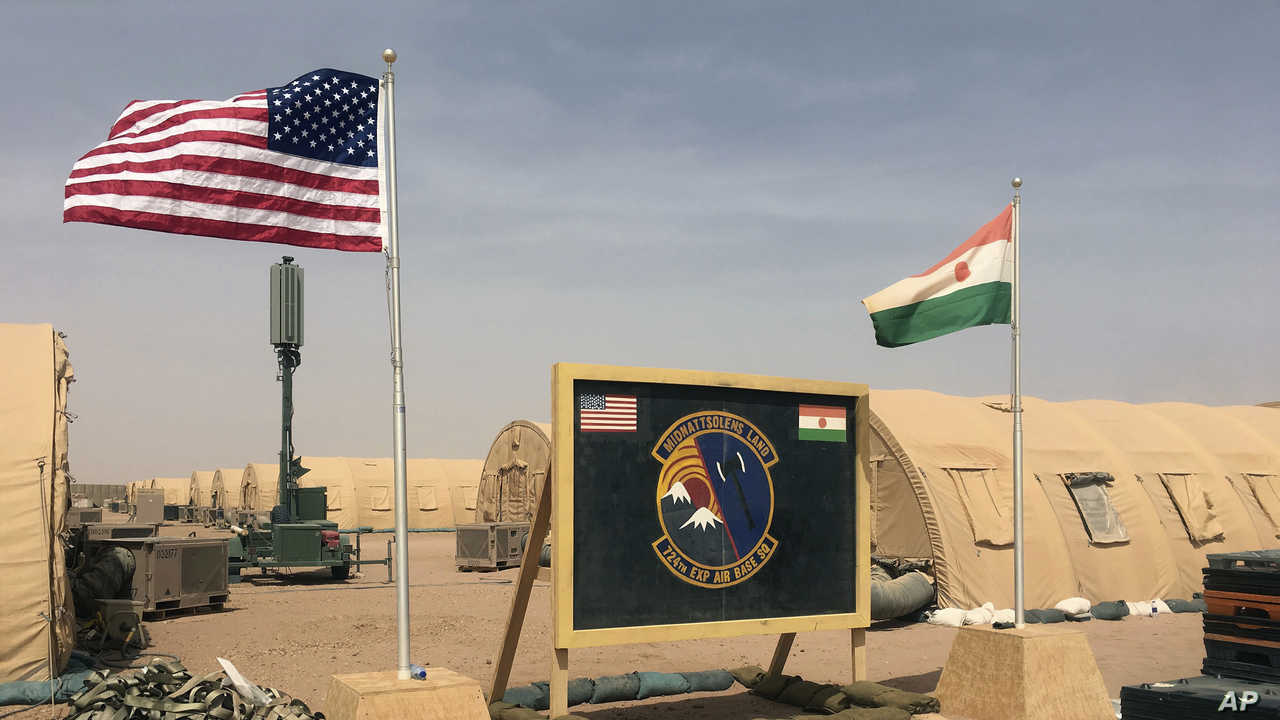US considers withdrawing troops from West Africa

A few minutes every morning is all you need.
Stay up to date on the world's Headlines and Human Stories. It's fun, it's factual, it's fluff-free.
On December 24, the New York Times reported that Defense Secretary Mark Esper is exploring the possibility of reducing American forces in West Africa.
The reduction, which the report suggests may eventually amount to a complete withdrawal, would be the first step towards a “reshuffling” and then a worldwide redeployment of American troops.
The Pentagon is considering withdrawing US troops from West Africa to focus on confronting the threat to US national security and possible changes to the international order posed by Russia and China.
The operation in West Africa is the first of the Pentagon’s global fighting commands to receive what is referred to as a “blank slate” review, with a decision from this review expected this month. It is also reported that reviews of operations in Latin America and the Middle East will follow.
Esper has reportedly given the United States Africa Command (USAFRICOM) until the end of January 2019 to produce a withdrawal plan. The defense secretary also requires blueprints for redeploying troops by the same deadline.
Withdrawal plan and what it involves
Should the withdrawal plans which are still at an early stage become official policy, the United States Armed Forces would abandon a new $110-million drone base in Niger. Alongside the abandonment of the drone facility, the United States would cease assisting French allies in the region. The 4,500 French troops combating terrorist groups in West Africa reportedly rely on American intelligence, logistics support and aerial refueling. This support costs the Pentagon about $45 million a year.
Although armed militants in Niger ambushed and killed four American soldiers in 2017, the main goal of US troops stationed in the region has not been to fight insurgents there. Instead, the US mission has focused on providing training and assistance to local security forces.
However, according to the New York Times, the defense secretary and his team question the value of the West African mission. Esper wants to scale back US presence in the region, because officials don’t believe the militants operating there have the ability or intent to attack American soil.
Officials have expressed some concerns about the proposal. Principally, that a US withdrawal could create a power vacuum that Russia and China could potentially exploit, undermining the initial purpose of reducing troops in the region. Another question is whether a lack of US presence could result in regional instability. Certain officials are also concerned that a withdrawal could result in more refugees and migrants heading to Europe.
Terrorism in Africa
The proposal comes at a time when terrorist groups in West Africa are gaining strength. Officials warn that extremist groups like Boko Haram and offshoots of al-Qaeda remain effective despite US-led special operations raids and drone strikes. Yearslong efforts by Western countries alongside West African governments have achieved little to defeat these groups.
The US military establishment appears to be aware of Africa’s rise to the forefront of global terrorism. In its annual report on terrorism released in October 2019, the United States Department of State highlighted Africa – not Syria or Iraq – as an area where terrorist activity is rising.
The Pentagon has discussed and enacted similar plans to the proposal outlined in the December 24 New York Times report. In November 2018, the United States Department of Defense said it would withdraw around 700 counterterrorism troops from Africa in the coming years. This announcement unnerved African commanders as it came at a time of increased attacks from terrorist groups operating in the Sahel.
Following signs of increased terrorist activity after the removal of US special forces – which included frequent bombings, massacres, kidnappings and attacks on hotels frequented by Westerners – critics lamented the Pentagon’s decision to withdraw.
Critics claim the increase in terror attacks was inevitable because the United States had withdrawn its troops before they had defeated the African region’s insurgents. Col. Maj. Moussa Salaou Barmou, commander of Niger’s Special Operations forces, has called the withdrawal of American counterterrorism units in Africa “a real problem.”
‘Endless wars’ pledge
President Trump has reportedly promised to end America’s “endless wars.” Although around 200,000 American troops remain stationed overseas – a similar number to when Trump took office – the president has ordered the withdrawal of forces in key conflict zones.
Trump ordered the removal of American troops from northern Syria in October 2019. However, after concerns about the re-emergence of the Islamic State after a US pullout, the president redeployed American soldiers to the area surrounding oil fields in northeastern Syria.
After 18 years of conflict in Afghanistan, recent reports suggest that the Taliban and the United States have agreed to a temporary ceasefire. Following the peace talks, US media suggests the Trump administration will announce plans to withdraw about 4,000 troops from Afghanistan. Despite the preliminary agreement, the US defense secretary said he planned to reduce the number of American troops in the country “with or without” a peace deal.
Alongside departing from the Middle East, President Trump has reportedly threatened allies in Europe and Asia with troop withdrawals. In August 2019, Trump warned Germany that he could withdraw a large deployment of US soldiers unless the European nation increased its defense spending. The president reportedly also demanded that South Korea contribute almost 400% more to costs relating to the deployment of nearly 30,000 US troops stationed there to guard against a North Korean attack.
Have a tip or story? Get in touch with our reporters at tips@themilsource.com




Comments ()